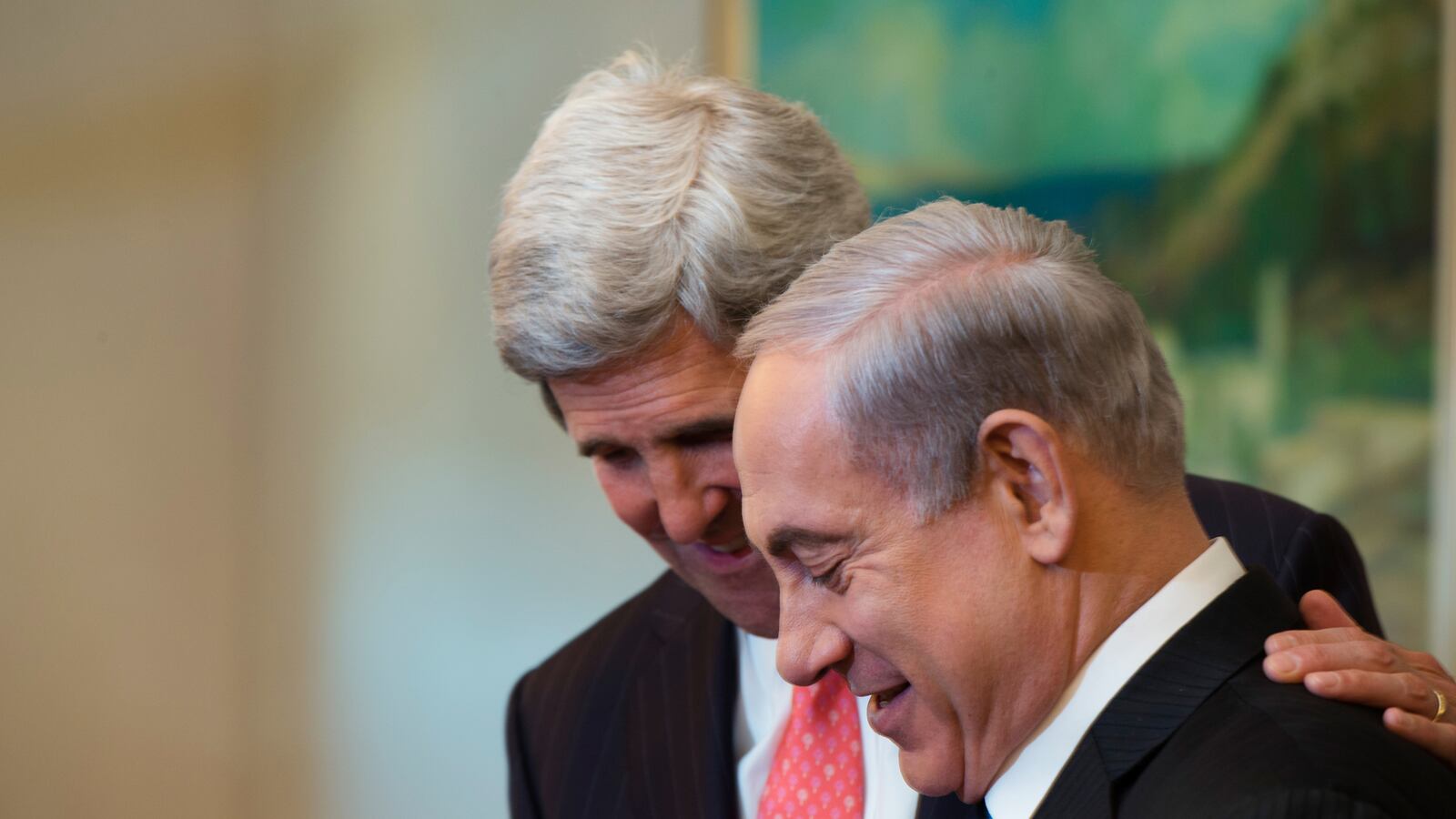John Kerry proved that those who do not give up can succeed. Others in his place could have easily returned to headquarters empty-handed after a sixth round in the Middle East, but Kerry's insistence has resulted in agreement from both Israeli and Palestinian leaders to meet in Washington next week after almost five years away from the negotiating table. This is a sign of things to come. The Secretary of State believes that the Palestinian-Israeli conflict has not yet been solved due to a mishandling of the matter rather than the conflict's intractability. This mission is his baby, and he will do all he can to have negotiations succeed. He also knows the steep price of failure: frustration, a dangerous deterioration into violence and, especially, a jaded sentiment that will prevent further efforts to end the conflict.
Since both sides have publically declared their preference for a permanent agreement over a gradual one, efforts should be made to reach such an accord. But if, as anticipated, the gaps are too wide to be bridged, rather than plummet into another blame game, it is critical that we move to Plan B: an interim agreement establishing a Palestinian state on provisional borders.

The gaps between Israeli Prime Minister Benjamin Netanyahu and Palestinian Authority President Mahmoud Abbas make their ability to reach a permanent agreement seem impossible. Moreover, both sides appear less dedicated than Kerry to resolving the conflict. Both give the impression that time is working in their favor and that they have alternative options. Abbas is toying with making an appeal to the international community and Netanyahu is clinging onto status quo. Furthermore, Netanyahu exudes a deep distrust of others, especially of his Arab counterparts. Settling his fears would require spreading so many safety nets that no Palestinian leader—moderate as may be—could agree to them as part of a permanent agreement. On the other end, Abbas cannot bring Gaza's 1.6 Million residents to the table as Hamas, who governs the small strip, will refuse to take part in negotiations with Israel.Netanyahu believes that a partial agreement can resolve the two-state solution while leaving difficult compromises for the much longer term. Abbas is afraid of just that, as he cannot guarantee that the partial agreement will not become permanent. But Abbas is more than the President of the Palestinian National Authority; as chairman of the PLO, he is responsible for the Palestinian people not just residents of the West Bank. Today, some 60,000 Palestinians that have fled Syria to Lebanon, another 7,000 have escaped to Jordan, thousands are scattered across other Arab nations and over 200,000 Palestinians find themselves internally displaced within Syria. There is no doubt that Abbas is losing sleep over their plight. An interim agreement can allow both new and old refugees to settle in a state of their own. Abbas cannot so easily give up on this opportunity.
Even if Netanyahu's interest in an interim arrangement stems out of hope that it will become permanent, Abbas should learn an important lesson from history. Begin gave up on the Sinai in order to keep the West Bank and Gaza. Sharon left Gaza to retain the West Bank, and Netanyahu has in principle agreed to a Palestinian state in order to preserve lands that have not yet been transferred to Palestinians. Change may be slow but it is certain. Eventually, a permanent agreement will be reached and a Palestinian state established on 1967 borders with some minor, mutually-agreed-upon adjustments. After all, if an interim agreement is not negotiated, the Oslo accords will prevail. It is better to at least guarantee the Palestinians a state even if its borders are provisional.
An interim agreement will include a vision and time table for a permanent agreement. Kerry set the precedent correctly by providing an American vision alongside side letters of which both sides are aware in order to bring key players to the table. The time table will give parties 2 to 3 years to reach a permanent agreement. Negotiations will first and foremost deal with the provisional borders of a Palestinian state (on at least 60 percent of the West Bank); set security arrangements between the two states; restrict settlement construction until a permanent resolution is reached; determine the role of Arab countries throughout the interim period (e.g., resuming commercial expeditions to Israel for the interim period, investing in the rehabilitation of Palestinian refugees who wish to settle in the new state, etc.); and touch upon other issues such as water, environment, East Jerusalem, and the electro-magnetic field, which will more easily facilitate the achievement of a permanent settlement.
The U.S. administration will play a key role in bilateral talks. This time around is unlike the Oslo talks or the peace treaty negotiations between Israel and Jordan, in which both sides were very interested in reaching consensus and the United States only helped reach a full understanding. One of John Kerry and Martin Indyk's most important roles for which they must prepare will be preventing the parties from packing their bags every time they hit a wall, and even more critically deciding when to shift to Plan B and push for an interim rather than a permanent agreement.






